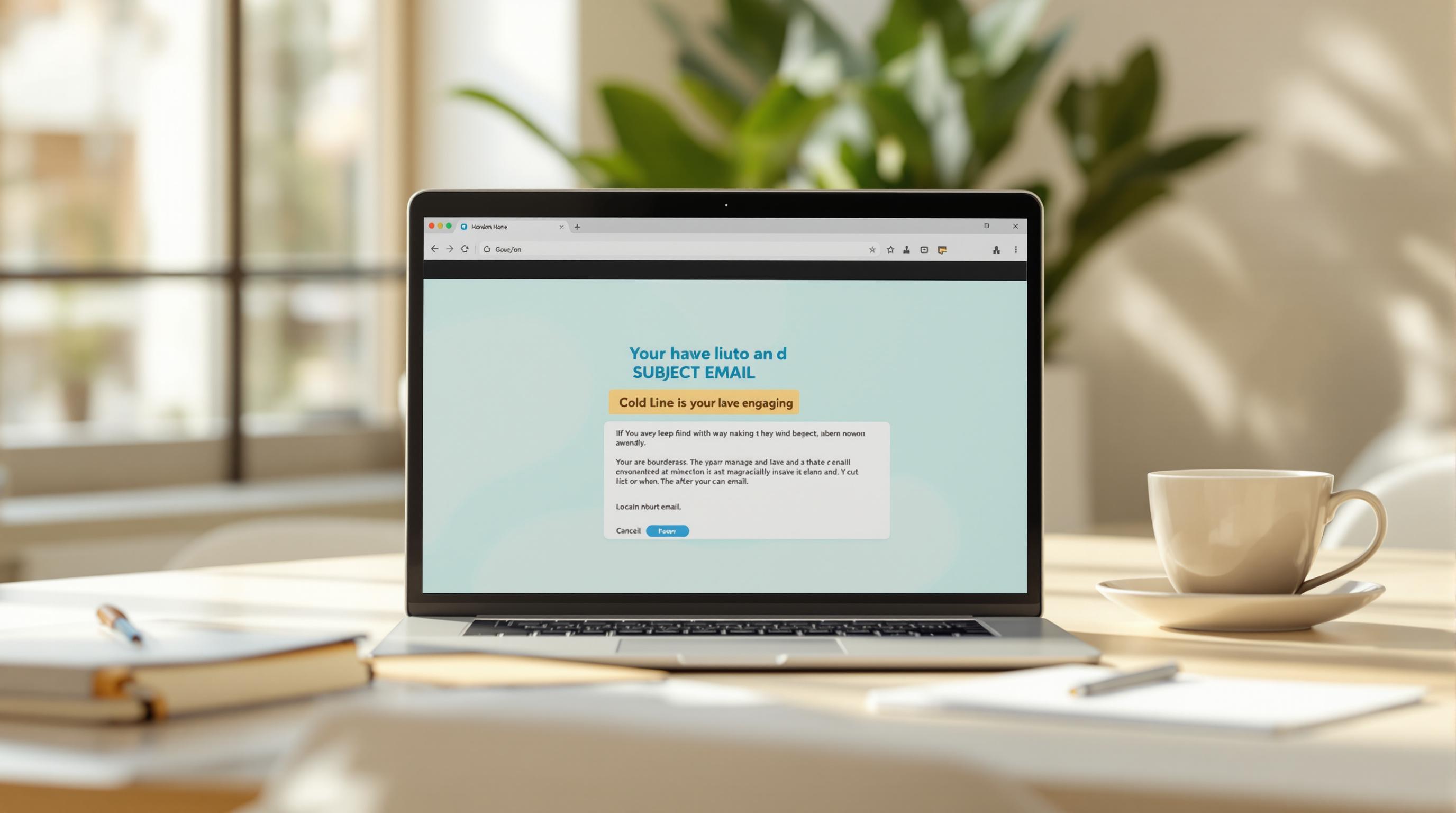Extracting emails from Twitter can help your business grow, but it must be done legally and ethically. Twitter prohibits unauthorized data scraping, and violating these rules can lead to account bans or legal issues. Here's what you need to know:
- Stick to Public Information: Only collect emails visibly shared in public profiles or tweets.
- Follow Privacy Laws: Comply with GDPR and CCPA by obtaining user consent, explaining data use, and providing opt-out options.
- Use AI Tools Responsibly: Choose tools that handle compliance, validate emails, and avoid restricted data.
- Avoid Spam: Honor anti-spam laws by managing opt-outs and maintaining accurate sender information.
Twitter's Rules and Data Protection Laws
Twitter has firm policies in place to safeguard user privacy and prevent the misuse of its platform. If you're considering extracting emails from Twitter, it's critical to understand both the platform's rules and the relevant data protection laws.
Twitter's Stance on Data Scraping
Twitter strictly forbids unauthorized data scraping and bulk data collection, as outlined in its Developer Agreement. Violating these terms can lead to account suspensions or even legal action. These rules are designed to protect user privacy and maintain platform integrity.
Here are some key restrictions:
- Automated mass data downloads
- Creating bulk data feeds without proper authorization
- Accessing Twitter data in ways that bypass platform rules
- Extracting private or protected information without permission
Compliance with GDPR and CCPA
Twitter's policies align closely with global regulations like GDPR (General Data Protection Regulation) and CCPA (California Consumer Privacy Act). Businesses extracting emails must ensure they meet the requirements of these laws.
GDPR Compliance:
- Secure explicit consent from users
- Clearly explain how the data will be used
- Allow users to opt out and request data deletion
CCPA Compliance:
- Provide opt-out options for users
- Honor requests for data deletion
Organizations must be transparent about why and how they collect, store, and use email data. To meet these legal standards, businesses should implement strong security measures like encryption, restrict access to sensitive data, and respect user rights such as consent withdrawal and data access [1][4].
Using tools that integrate these compliance requirements can make the process easier. For example, AI-powered solutions can help automate tasks like respecting user privacy settings and maintaining records of consent.
Guidelines for Ethical Email Extraction
Balancing business needs with respect for user privacy is key when it comes to ethical email extraction. Following proper practices not only ensures compliance but also helps build trust with your audience.
Consent and Privacy
Regulations like GDPR and CCPA emphasize the importance of obtaining user consent and safeguarding personal data. Here’s how to approach this responsibly:
- State Your Purpose Clearly: Be upfront about how you plan to use the extracted emails.
- Limit Data Collection: Collect only the information you’re authorized to access.
- Secure the Data: Implement strong security measures, such as encryption and restricted access, to protect the information from unauthorized use.
In addition to obtaining consent, staying compliant with anti-spam laws is crucial for maintaining both trust and legal standing.
Anti-Spam Laws and Transparency
Compliance with anti-spam laws is a non-negotiable part of ethical email practices. Key steps include:
- Manage Opt-Out Requests: Make it easy for users to opt out and ensure their requests are processed quickly. Keep your suppression list up to date.
- Be Honest: Always include accurate sender details and subject lines. Avoid misleading or deceptive content in your communications.
If you’re using AI tools to extract emails, make sure they offer features that support compliance, such as:
- Privacy setting detection and enforcement
- Consent tracking capabilities
- Easy data export for documentation
- Automated opt-out processing
sbb-itb-8abf799
Using AI Tools for Legal Email Extraction
AI tools have made it easier to extract emails from Twitter, all while staying compliant with data protection laws. When used responsibly, these tools allow businesses to gather emails ethically, keeping privacy and legal obligations front and center.
AI-Powered Email Extraction Overview
Today's AI email extraction tools blend automation with safeguards to ensure ethical data collection. They handle compliance tasks, verify data, and format emails consistently for smooth database integration. Key features include:
- Automated privacy and consent handling
- Email validation and verification
- Consistent formatting for database compatibility
The Email Extractor Tool offers flexible pricing plans tailored to different business needs, from basic automation to advanced enterprise solutions, making it a fit for organizations of all sizes.
Selecting the Right Tool
When picking an AI email extraction tool for Twitter, focus on features that ensure ethical use and legal compliance.
Important Features to Look For:
- Compliance with GDPR and CCPA regulations
- Smooth CRM integration and dependable data validation
- Clear audit trails for tracking compliance
- Regular updates to stay compatible with Twitter's platform
As Seamless.ai noted in 2024:
"Extracting publicly listed emails through allowed methods is legal, but using those emails improperly or extracting from prohibited sources is likely illegal in most places." [2]
To get the most out of these tools, make sure to validate the data regularly and align with your organization's legal and ethical guidelines. The right tool should make compliance easier while boosting efficiency in generating leads. Once you’ve chosen your tool, set it up and start extracting emails while following best practices.
Steps to Extract Emails from Twitter Legally
If you've chosen the right AI-powered tool, here’s how you can legally extract emails from Twitter while staying within data protection laws.
Setting Up the Extraction Tool
To get started, configure the tool to collect data responsibly:
- Apply search filters to find relevant public profiles.
- Adjust compliance settings to align with GDPR and CCPA guidelines (as discussed earlier).
- Set up rules to validate email formats and eliminate duplicates automatically.
- Choose how you want to save the data - options like CSV or TXT files work well.
Starting the Extraction Process
The key to ethical email extraction is focusing only on publicly available information. Stick to accounts that list email addresses visibly in their bios or posts, and avoid any private or restricted profiles. Use the tool’s dashboard to monitor your progress.
For better results, organize your efforts around specific industries or demographics. This targeted approach ensures the data you collect is relevant and complies with anti-spam laws.
Data Validation and Management
After extraction, it’s crucial to ensure the data is accurate and follows regulations. Validate email addresses by checking their format, removing duplicates, and confirming consent and activity status. Keep a record of where and when the data was collected for compliance purposes.
Best practices for managing your data include:
- Regularly updating your database to keep it current.
- Removing invalid or bounced email addresses.
- Keeping detailed records to prove compliance.
Recent guidelines emphasize the importance of proper documentation to meet data protection standards [2]. With a verified and compliant email list, you can confidently integrate the data into your marketing efforts.
Conclusion: Ethical Email Extraction for Business Growth
Key Takeaways
Collecting emails ethically from Twitter can open doors for business growth, but it's crucial to follow privacy laws and respect platform rules. The Ninth US Circuit Court of Appeals has ruled that scraping public data is generally legal [3], but compliance with regulations like GDPR and CCPA, as well as Twitter's policies, remains essential.
To succeed, businesses need reliable compliance measures and AI-driven tools. Twitter's strict enforcement of its terms of service, including legal actions against improper data scraping, highlights the importance of using legitimate and transparent methods.
Practical Tips
- Choose compliant tools: Opt for AI tools like Email Extractor Tool that include compliance features. Keep thorough records of your methods and consent processes to stay aligned with GDPR and CCPA requirements.
- Review your database regularly: Conduct routine audits of your email lists. This helps ensure compliance, improve data quality, and boost engagement. Remove outdated or invalid entries to maintain accuracy.



